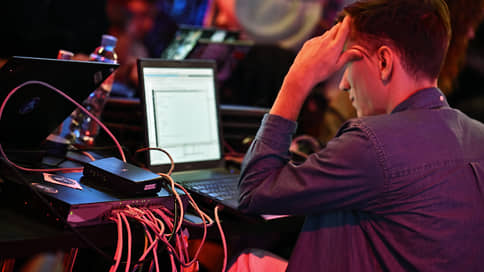the volume of the Russian cybersecurity market will grow by an average of 24% per year
[ad_1]

The volume of the Russian cybersecurity market in the next few years will grow by an average of 24% per year and by 2027 will amount to 559 billion rubles, the Center for Strategic Research (CSR) believes. So far, despite the departure of Western vendors and import substitution, the share of foreign solutions remains significant: 30% by the end of 2022. According to the CSR, it will fall to 5-8%, which will be occupied by players from friendly countries, mainly China. Market participants give more conservative estimates of market growth, at 15-17% per year.
Kommersant got acquainted with the forecast for the development of the Russian cybersecurity market for 2023-2027, prepared by the Center for Strategic Research and presented at the Russia-Africa forum in St. Petersburg on July 28. It follows from it that the volume of the market of solutions and services of cybersecurity in Russia by 2027 will be 559 billion rubles. with an average annual growth of 24%. In 2022, the market as a whole (products and services) in the Russian Federation increased by only 4%, to 193.3 billion rubles. (the global cybersecurity market grew by 11%). At the same time, the ratio of supplies of protective equipment and services in 2022 did not change significantly. The share of services was 26% (27% at the end of 2021) of the total market volume, and information security tools – 74% (73% at the end of 2021).
The position of Russian suppliers in 2022, as expected, increased, they occupied 70% of the market (in 2021 – 61%). According to CSR analysts, the presence on the market of foreign solutions, despite the departure of most Western suppliers, will be supported by “the expansion of companies from friendly countries, especially China.” With this in mind, the share of foreign vendors by 2027 may be 5-8%. In the spring, IT integration market participants also noted an increase in demand for Chinese cybersecurity solutions (see Kommersant dated April 6).
The share of foreign suppliers remains high in certain industries, in particular, in metallurgy, electric power, transport and logistics, Anastasia Ryzhkova, head of the analytical agency T1 Holding, notes: “We attribute this to an earlier start of implementation.”
Market leaders in security products in terms of revenue, according to CSR, are Kaspersky Lab (16.0%; 13% a year earlier) and Positive Technologies (12.4% vs. 9%), 4.8% – from the Israeli Check Point ( against 7%), 4.3% for BI.ZONE. The products of the American Cisco and Fortinet each account for 4.1% of the market, 3.3% for InfoTeKS, and 2.8% for the American IBM. RTK-Solar is the leader in the cybersecurity services market.
There are different trends in different market segments. Thus, solutions in the field of network security lost 4.7% of sales, amounting to 58 billion rubles. The direction of means of data protection lost at once 40.5%, having made 12 billion rubles. At the same time, sales of solutions for protecting workplaces grew by 46%, to 27 billion rubles, and products for protecting infrastructure – by 29.4%, to 22 billion rubles.
Traditionally, hardware solutions have occupied a large share in network security, they are more difficult to replace and it takes more time to integrate them, note in Kaspersky Lab. In general, the difference in trends is associated with the desire of companies to reduce the load on their resources, the companies add: customers chose solutions that required less hardware costs, and also made it possible not to significantly increase the cybersecurity staff. “We see an increase in the cost of information security, but no more than 15–17% per year,” says Valentin Krokhin, director of product development at RTK-Solar.
Igor Dusha, director of the NOTA Cybersecurity Product Portfolio, believes that against the backdrop of these trends, the market is expected to expand in the near future: “Existing strong players have been actively expanding their product line for several years, forcing out small companies. There will also be a new business that will focus on the desire to take a share in a fast-growing market, but it will represent large IT holdings.
[ad_2]
Source link





